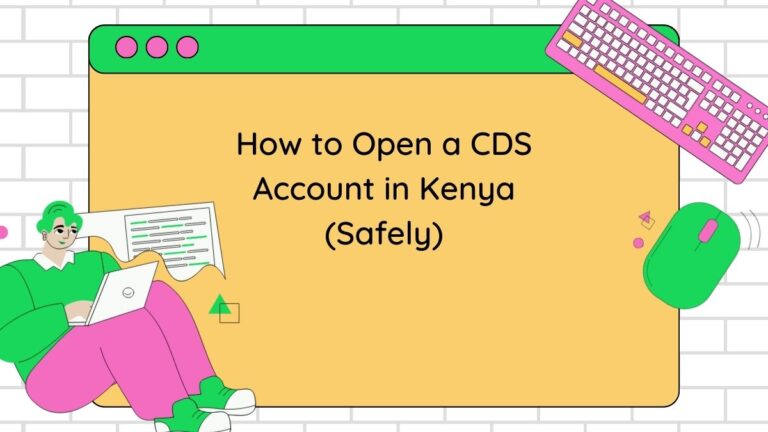Wholesale Business in Kenya: #9 Best Ideas + Guide
The wholesale business sector in Kenya is a major contributor to the country’s economy and provides employment opportunities for thousands.
Wholesaling involves buying products in bulk from manufacturers or producers and selling them in smaller quantities to retailers or other businesses.
Kenya has a growing consumer market fueled by a rising middle class. This has led to increased demand for consumer goods and services.
At the same time, Kenya aims to become a lower-middle-income country by 2030.
These factors present lucrative wholesale business opportunities in Kenya.
Starting a wholesale venture can be profitable if done right.
You get to buy products at lower prices since you purchase in bulk directly from suppliers.
You then sell the products to retailers who sell to end consumers.
This allows you to operate on small margins but high volumes and turnover.
However, the wholesale industry is also highly competitive.
You need sufficient capital, networks with suppliers and customers, and proper inventory and cash flow management.
Adhering to legal requirements is also critical.
This blog post explores the wholesale sector in Kenya.
It covers the top wholesale business ideas in Kenya, how to start and run a successful venture, legal requirements, and tips for thriving in this market.
If you are looking to tap into the growing consumer demand in Kenya through a wholesale model, this post offers insightful guidance.
Overview of the Wholesale Industry in Kenya
The wholesale industry in Kenya is an important sector that contributes significantly to the country’s Gross Domestic Product (GDP).
According to Statista, the wholesale and retail trade sector added seven percent to Kenya’s GDP in 2020.
The sector also grew by 5.7 percent in the first quarter of 2023.
The Kenya GDP: Wholesale and Retail Trade data, updated quarterly, shows that the industry has been growing steadily, with an all-time high of 306,684.000 KES mn in Mar 2023.
The wholesale industry in Kenya comprises a wide range of businesses that act as intermediaries between manufacturers or producers and retailers.
And in 2021, the wholesale and retail trade sector was one of the strongest-performing sectors of the economy, with a growth rate of 7.9%.
It’s a key link between manufacturers and end consumers.
Key players in wholesaling include:
- Importers – import finished goods and distribute locally
- Local distributors – distribute locally manufactured goods
- Regional wholesalers – cover certain regions of the country
- National wholesalers – distribute goods countrywide
- Cash and carry wholesalers – offer goods at wholesale prices to retailers
The top segments in wholesale trade include:
- Food and beverages
- Medical and pharmaceutical supplies
- Consumer home electronics
- Motor vehicle parts and accessories
- Construction materials
- Textiles and apparel
- Agricultural supplies and produce
- Cosmetics and personal care products
- Household goods
Kenya has over 30,000 registered wholesalers. Most are small operations serving their locality. However, some large wholesalers have a national presence.
Challenges facing the sector include:
- High operational costs – rent, staff, utilities
- Access to capital and credit
- Insurance costs
- Competition from imports
- Poor infrastructure increasing distribution costs
- Inadequate skills and knowledge
However, opportunities exist to overcome these challenges.
Kenya’s young and educated population provides a talent pool to tap into.
Improving technology is enabling efficiency in operations and logistics.
Government initiatives aim to improve the business environment and infrastructure.
Regional markets are also opening up for exports.
For new ventures, careful market research is required.
Assessing consumer needs, competition, suppliers, legal requirements and available capital will inform the products and business model to adopt.
Building relationships with stakeholders across the supply and distribution chain is also key to success.
With proper planning and execution, wholesaling presents solid business opportunities in Kenya.
Is a wholesale shop profitable in Kenya?
Starting a wholesale business in Kenya can be profitable. Research suggests that wholesalers in Kenya can make a profit of about 15 to 30%.
Kenya’s rapidly growing economy and a projected GDP growth rate of 5.5% in 2022 create a conducive environment for entrepreneurs looking to start a wholesale business.
Wholesale businesses purchase items in large quantities, which can lead to lower prices per unit and, consequently, higher profitability.
And the growing e-commerce market in Kenya provides opportunities to sell products online, further contributing to the profitability of a wholesale business.
Either way, whether a wholesale shop is profitable in Kenya depends on several factors, but it can be a promising venture. Here are some points to consider:
Pros:
- High demand: Kenyans value affordability, and wholesale offers competitive prices due to bulk buying. This caters to both retailers and consumers seeking value.
- Stable income: Wholesalers often have consistent bulk orders from retailers, leading to more predictable income flow than retail shops.
- Lower overheads: Wholesalers typically require less floor space and staff compared to retail shops, potentially reducing operational costs.
- Growth potential: With a successful business model, you can expand your clientele and product range, increasing profitability.
Cons:
- High competition: The wholesale market in Kenya is competitive, requiring strategic planning and differentiation.
- Large capital: Depending on the products, you might need significant capital to purchase inventory in bulk.
- Storage and logistics: Managing large quantities of products requires efficient storage and transportation solutions, adding to costs.
- Business acumen: You need strong business skills in negotiation, pricing, inventory management, and customer service.
How much can you make with a wholesale business in Kenya?
There is potential to make good money with a wholesale business in Kenya, but the exact income will vary greatly based on factors like:
- Scale of business – Large nationwide wholesalers make much more than small local operators. Starting capital impacts scale potential.
- Margins in your niche – Some products like food may have 10-20% margins while electronics can be 30-50%. Higher the margins, greater the potential earnings.
- Efficiency of operations – Optimizing inventory turnover, logistics costs and reducing expenses improves profitability.
- Business costs – Rent, labor, utilities etc. impact net earnings. Managing costs prudently is key.
- Sales and distribution reach – Wholesalers covering wider geographical areas and larger customer bases make higher revenues.
- Value addition – Offering services like storage, packaging, delivery etc. can improve earnings.
According to Kenya National Bureau of Statistics, the median monthly sales turnover for a wholesaler is Ksh 500,000 to Ksh 1 million. However, large wholesalers dealing in fast moving consumer goods do Ksh 50 million to over Ksh 100 million in monthly sales.
After deducting the cost of goods sold and operating expenses, established wholesale enterprises with good networks and execution can achieve 10-20% net profit margins on average.
With proper product selection, business planning, cost control and sales strategies, mid-sized wholesalers in Kenya potentially can earn Ksh 5 million to Ksh 15 million in annual profits within a few years of operations.
The scope increases significantly for large regional and nationwide players.
Popular Wholesale Business Ideas in Kenya
Several wholesale business opportunities are worth considering in the Kenyan market.
Here are some of the most popular and lucrative:
Food and Beverages
- Fruits and vegetables – There is high demand for fresh farm produce. Importing and distributing fruits and vegetables from major growing regions offers a steady wholesale business opportunity.
- Dry foods – Products like grains, flour, salt, sugar and cooking oil have widespread demand. Bulk imports and local sourcing can work.
- Dairy – Milk, butter, cheese and yogurt provide wholesaling options. Ensure optimal cold storage and transport.
- Juice and soft drinks – Soft drinks, bottled water, energy drinks and juices sell widely. Distribute leading local and international brands.
- Alcoholic drinks – Wines, spirits and beers provide wholesale opportunities serving hospitality businesses. Get requisite liquor licensing.
- Snacks and confectionery – Crisps, chocolate, biscuits, sweets and chewing gum have booming demand from retailers.
Home and Personal Care Products
- Toiletries – Soap, detergents, toothpaste, diapers etc. have regular demand. Distribute popular brands nationally.
- Cosmetics – Creams, makeup, hair products, fragrances etc. Grow by importing sought-after global brands.
- Household goods – Products like kitchenware, utensils, cleaning items, furnishings are needed nationally.
- Stationery and office supplies – Good market supplying businesses, schools, colleges and other institutions.
Medical Supplies
- Pharmaceuticals – Generic drugs and popular brands provide wholesale opportunities. Requires licensing.
- Medical devices – Distributing medical devices and hospital equipment is growing in demand.
- Protective equipment – Masks, sanitizers, gloves etc. remain essential items with steady demand.
Automotive and Electronics
- Motor vehicle parts & accessories – From lubricants to tyres, auto parts have widespread wholesale demand.
- Electricals and electronics – Mobile devices, TVs, home appliances, computers/laptops and accessories are sought after.
- Solar products – Kenya’s off-grid populations require solar lighting and power products distributing through wholesalers.
Clothing and Textiles
- Fabrics – Textiles and traditional African print fabrics have demand across clothing outlets and tailors.
- Readymade garments and shoes – Importing fashionable brands allows servicing nationwide clothing retailers.
- Uniforms and workwear – Good opportunity supplying uniforms, safety wear and promotional wear to institutions and companies.
Agribusiness Supplies
- Farm tools and machinery – Items like tractors, irrigation systems, harvesters etc. are needed by farmers.
- Agrochemicals – Fertilizers, pesticides and herbicides are used in large volumes across the country.
- Animal feeds – Poultry, cattle and rabbit feeds serve livestock farmers.
- Seeds – High quality seeds are required by farmers and need distribution.
Construction Materials
- Hardware – Fast moving products like cement, pipes, paint, electricals, steel etc.
- Power tools – Industrial tools used in construction have lucrative wholesale potential.
With extensive market analysis, an entrant can identify the most viable niches to profitably wholesale in Kenya.
How to Start a Wholesale Business in Kenya
Starting a wholesale business in Kenya entails careful planning and preparation.
Here is a step-by-step process:
Step 1: Identify Niche and Products
- Research the market’s needs, gaps and growth areas.
- Decide which product categories to wholesale based on demand and ease of sourcing.
- Identify specific target customers like retailers or institutions.
- Evaluate competition and unique offering potential.
Step 2: Develop Business Plan
- Craft detailed financial projections and capital required.
- Outline operational plan covering inventory, logistics, human resources, etc.
- Set growth plans for next 3 to 5 years.
- Specify systems for managing operations and sales.
Step 3: Secure Financing
- Estimate working capital needs for startup inventory, warehousing, etc.
- Raise capital through savings, loans, partners, investors, banks, or grants.
- Talk to suppliers about possible credit terms. Manage finances prudently.
Step 4: Obtain Warehouse and Equipment
- Rent suitable warehousing space for inventory storage and handling.
- Acquire material handling equipment like forklifts, racks, pallets etc.
- Get office furniture and tech like computers, point-of-sale systems.
Step 5: Handle Legal Registration and Licensing
- Choose and register company name at Attorney General’s office.
- Obtain business permit and trading license from county government.
- Apply for KRA PIN for tax purposes.
- Acquire any other Permits and licenses needed for products.
Step 6: Build Supplier Relationships
- Identify and contact manufacturers, exporters, distributors and farmers.
- Negotiate agreements with competitive prices, MOQs, delivery terms.
- Ensure steady supply chain and bulk sourcing advantages.
Step 7: Engage Customers
- Contact potential retailers, hospitals, hotels and institutional clients.
- Promote business through meetings, samples, sales material.
- Offer competitive rates, value added services, delivery options.
Step 8: Manage Inventory and Logistics
- Develop systems for forecasting demand, procuring stock, warehousing and delivering to customers.
- Maintain optimal inventory levels to balance working capital and customer service.
- Invest in reliable distribution vehicles and strategies to reach customers efficiently.
Step 9: Hire Staff
- Recruit sales, finance, procurement, warehouse and delivery personnel.
- Train staff on products, systems, processes and service culture.
Step 10: Financial Control
- Implement robust accounting, cash flow management, and inventory control systems.
- Track sales, revenues, costs and profitability frequently.
- Manage debtors, creditors, taxes and cash flow optimally.
With proper planning and execution, an entrepreneur can start a successful wholesale business in Kenya.
Conducting thorough market research, developing an airtight business plan, managing capital and inventory prudently, and building relationships across the supply and distribution chain are key.
Legal compliance must also be adhered to. This process requires diligence but the wholesale sector provides solid business opportunities if done right.
Legal Requirements and Licenses
Wholesalers in Kenya have to adhere to various legal requirements and obtain licensing depending on their specific products. Key requirements include:
Business Registration
- Register company name and documents with Attorney General’s office.
- Obtain a business permit from the county government.
- Apply for a PIN and fulfill tax obligations with KRA.
Food Safety
- Acquire certification from Kenya Bureau of Standards for food products.
- Obtain health certificates and comply with food safety regulations.
Pharmaceutical Licensing
- Get wholesale dealer’s license from Pharmacy and Poisons Board to distribute pharmaceuticals.
Alcoholic Drinks
- Obtain liquor license from National Authority for the Campaign Against Alcohol and Drug Abuse.
- Acquire trade processing permits for alcoholic imports.
Pest Control Products
- Register with Pest Control Products Board to deal in pesticides, herbicides etc.
Industrial Licensing
- Acquire licenses needed for certain regulated products like electronics, textiles etc.
Import/Export
- Have valid import/export license from Kenya Revenue Authority.
- Get customs warehouse license for bonded storage of imports.
County Government
- Obtain trade license issued by county government.
- Pay produce cess for agricultural goods if applicable.
Labor Regulations
- Register employees with National Hospital Insurance Fund.
- Comply with labor laws and statutory contributions like NSSF.
Safety and Standards
- Meet relevant safety and quality standards like ISO certification.
- Ensure certified weighing equipment, protective gear etc.
Environmental
- Follow refuse and waste disposal regulations.
- Adhere to environmental laws and obtain EIA licenses if required.
Association Membership
- Join relevant trade association for networking and industry advocacy.
Adequate due diligence must be conducted on the licenses required for specific products before commencing operations.
Non-compliance can result in heavy penalties or closure. Engaging professionals like lawyers help navigate legal requirements when starting a wholesale venture in Kenya.
Capital Requirements To Start a Wholesale Business in Kenya
To start a wholesale business in Kenya, you will need to consider market research, financial planning, and legal compliance.
The initial investment required is at least Kshs. 500,000, which includes costs for rent, licenses, permits, inventory, equipment, and staff.
Additionally, you must comply with legal requirements, such as registering the business with the relevant authorities and obtaining a tax identification number.
It’s essential to understand the legal and regulatory framework for starting a business in Kenya, including labor, health, safety laws, and intellectual property laws
Tips for Running a Successful Wholesale Business in Kenya
Succeeding in the wholesale business in Kenya requires strategic planning and solid execution. Here are some tips:
Offer Good Customer Service
- Build long-term relationships with retailer clients through consistent service.
- Make ordering and payments convenient through digital channels.
- Provide flexible delivery options adjusted to customer needs.
- Offer complementary services like storage, packaging and credit.
Develop Supplier Relationships
- Partner with reliable manufacturers and producers for steady supply.
- Use scale to negotiate favorable bulk pricing and payment terms.
- Maintain proper supplier contracts and inventory forecasting system.
Manage Working Capital
- Optimize inventory turnover rate for maximizing capital efficiency.
- Enforce prudent debtor collection and creditor payment terms.
- Utilize bank financing, overdrafts and cash management tools optimally.
Leverage Technology
- Adopt inventory management software for accuracy and control.
- Enable online B2B ordering and payments to ease transactions.
- Use data analytics for insights on sales, customers, and performance.
Facilitate Logistics and Distribution
- Invest in reliable transportation and handling equipment.
- Locate warehouses strategically to reach target markets efficiently.
- Offer order tracking and have contingency plans to maintain supplies.
Monitor Market Trends
- Keep abreast of new products, competitors, regulations, and consumer preferences.
- Adjust product ranges and marketing accordingly to remain competitive.
- Scout for new markets and export opportunities.
Automate Processes
- Digitize manual paperwork like orders, inventory control, invoicing etc.
- Automate accounting, reporting and other workflows for efficiency.
Control Costs
- Negotiate good rates on overheads like rent, utilities, insurance etc.
- Keep payroll lean and boost staff productivity.
- Scrutinize expenses and eliminate waste through lean operations.
Upskill Employees
- Train staff on products, systems, customer service, and performance.
- Develop motivational programs with incentives to boost retention and productivity.
By planning strategically, optimizing operations, leveraging technology, controlling costs, and developing stakeholder relationships, wholesale ventures can gain a competitive edge and long-term success in the Kenyan market.
20 Best Wholesale Business Name Ideas in Kenya
You didn’t ask for this, but I am just going to throw this up here. See what you can do with it😂.
So, here are 20 potential names for a wholesale business in Kenya:
- Safari Wholesalers
- Rafiki Wholesale Supplies
- Jambo Wholesale Limited
- Umoja Wholesalers
- Maisha Wholesale Distribution
- Amani Wholesale Enterprises
- Karibu Wholesale Company
- Jumbo Wholesale Kenya
- Afya Wholesale Suppliers
- Bidco Wholesale Limited
- Tembo Wholesale Ventures
- Mahindi Wholesale Limited
- Twiga Wholesale Distribution
- chapa Wholesale Company
- Jaza Wholesale Kenya
- FreshPro Wholesale Limited
- Swift Wholesale Solutions
- Mkulima Wholesale Supplies
- Hub Wholesale Company
- Rafuka Wholesale Enterprises
The names incorporate words like “wholesale”, “supplies”, “distribution” to indicate the nature of the business.
Also included are words common in Kenya language such as jambo, twiga, tembo, chapa, mkulima etc.
The names aim to be unique, memorable, and appealing to the local market.
Consideration is given to availability for registration and branding potential as well.
Key Takeaways
- The wholesale sector in Kenya handles bulk distribution of finished goods to retailers and is a key economic driver.
- Top wholesale segments like food, home care, medical supplies, automotive parts and textiles present solid business opportunities.
- Conduct extensive market research and create a viable business plan before starting a wholesale venture.
- Manage working capital, inventory and logistics efficiently while building supplier and customer relationships.
- Adhere to all legal requirements and licensing for registration, food safety, pharmaceuticals, alcohol, imports/exports etc.
- Customer service, prudent financial control, technology adoption and cost optimization enable wholesale success in Kenya.
Read also:







